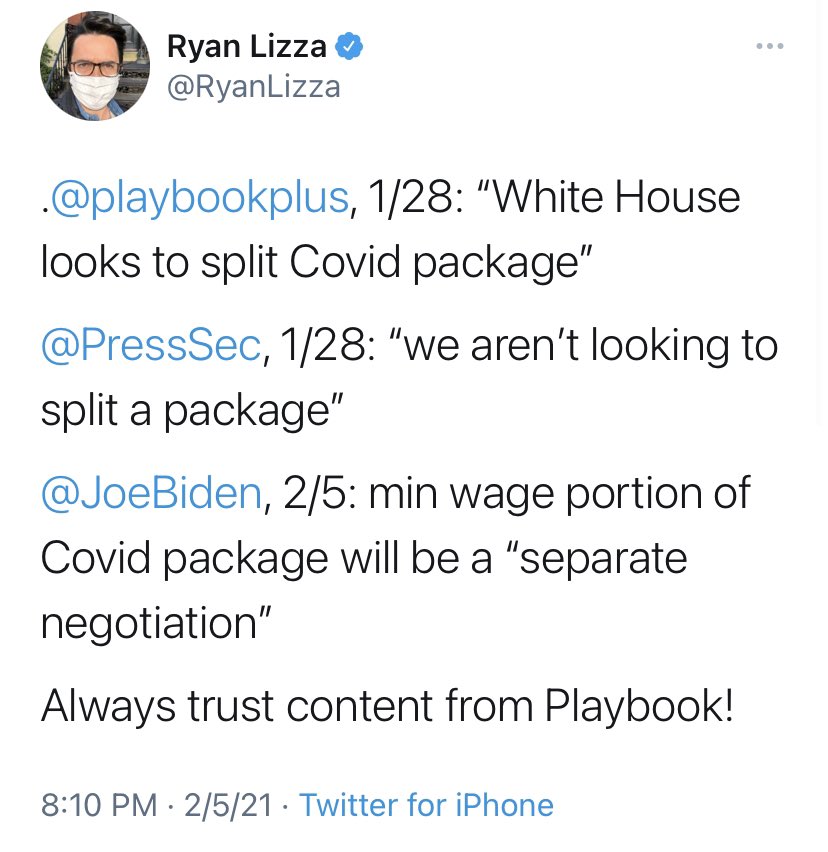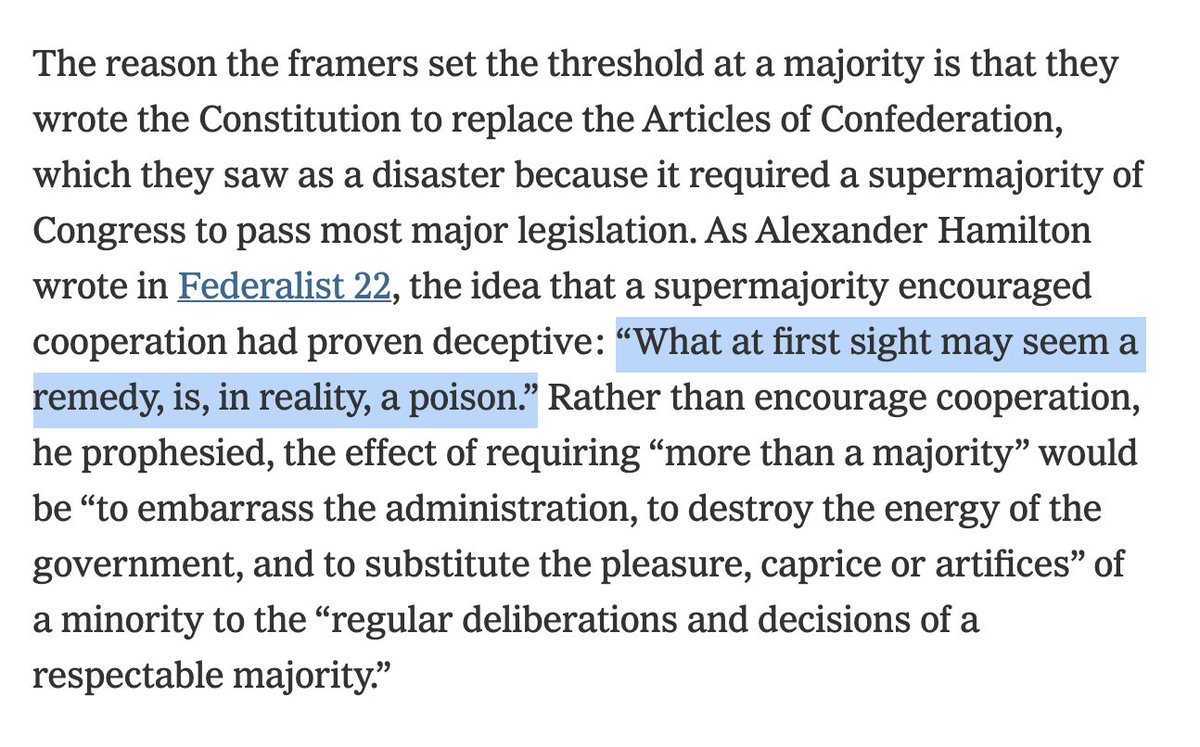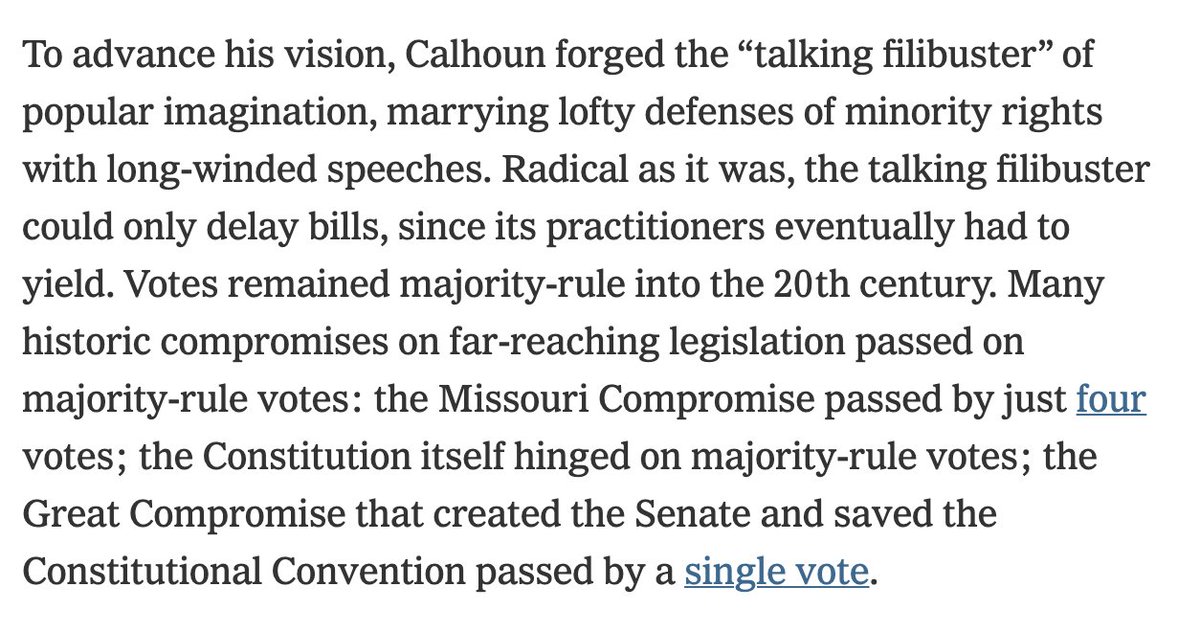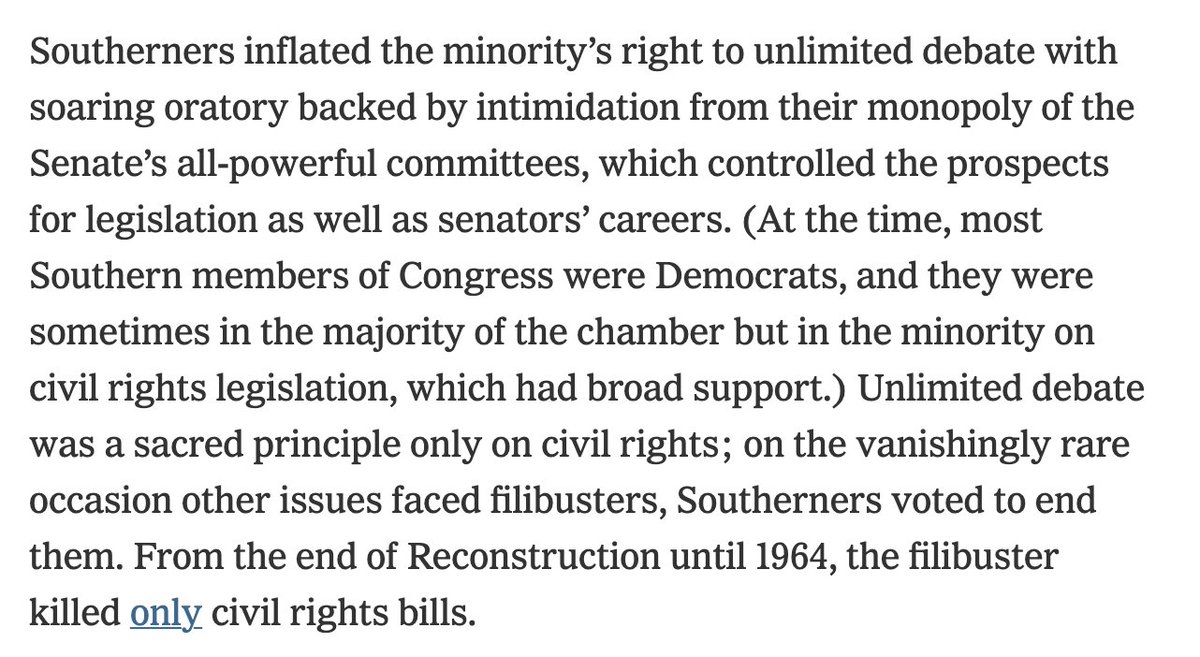
This is a microcosm. What makes Manchin’s position awkward and I think ultimately unsustainable is that in most instances he will be arguing to give people less help and do less good for our democracy than Biden and his fellow Dems - many of whom are up in 2022 - want to do.
https://twitter.com/ericawerner/status/1358923703397064704
It would be one thing if Manchin’s stand could leverage a bipartisan deal instead of a Dem-only version. But as we’re seeing on covid relief, getting 10 Rs is a fantasy. So it comes down to doing a Dem-only version or nothing at all. Biden and 2022 Dems can’t accept the latter.
I think this is key. I’m a Manchin defender because he has the highest WAR of any Senate Dem (Tester is arguably tied). While I can’t speak for him and would never presume to know his heart, from past experience I believe he does care about Biden’s success & keeping the majority.
https://twitter.com/f100000tweets/status/1358944555001933826
WAR = Wins Above Replacement. In Senate terms you’d calculate it based on votes cast versus partisan lean of the state. So Manchin and Tester, representing deep red states but casting lots of votes for Dems, have the highest WAR while Feinstein almost certainly has the lowest. 

Yeah Sherrod Brown has an extremely strong case as well
https://twitter.com/mikeyfranklin/status/1358965715571720192
• • •
Missing some Tweet in this thread? You can try to
force a refresh









